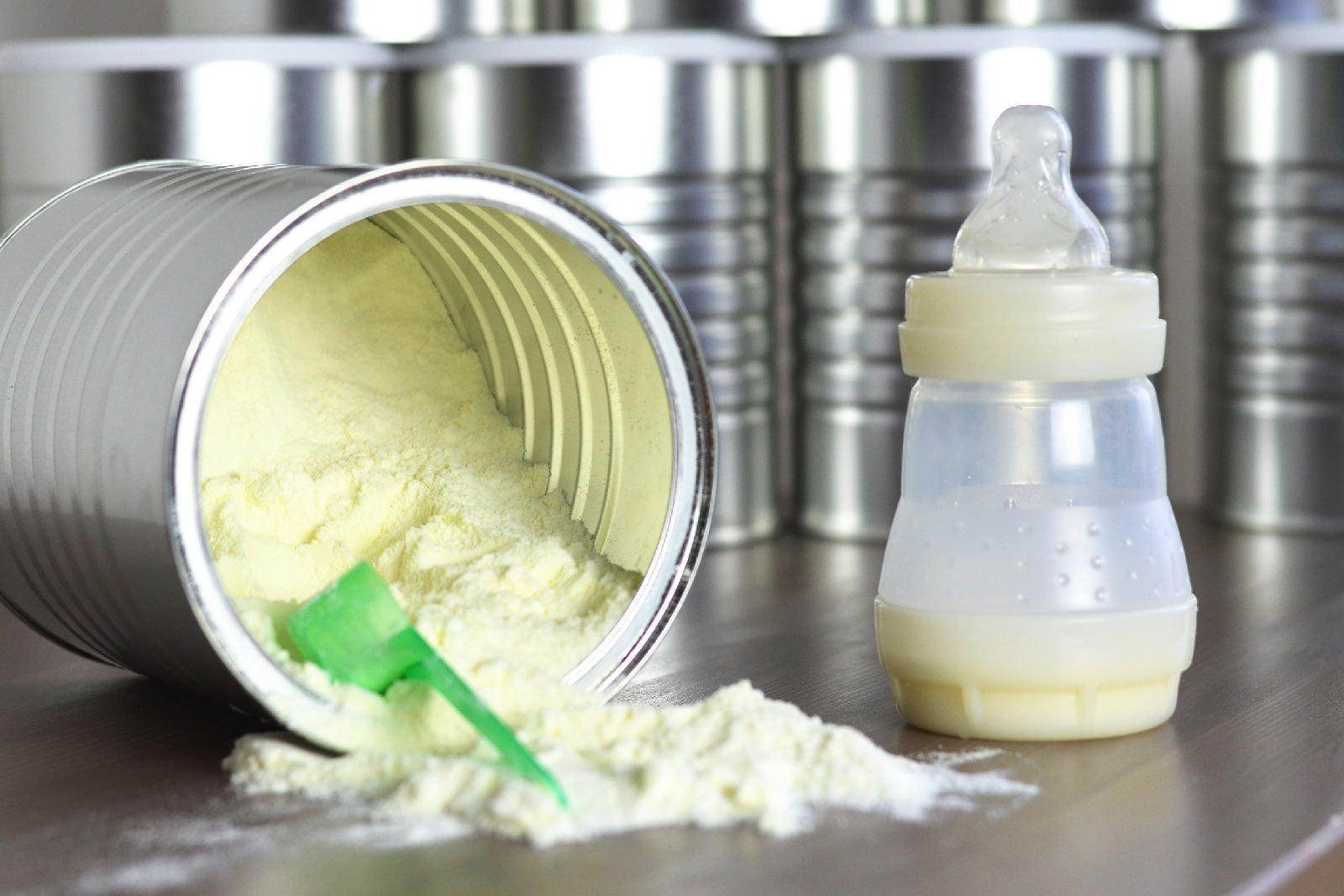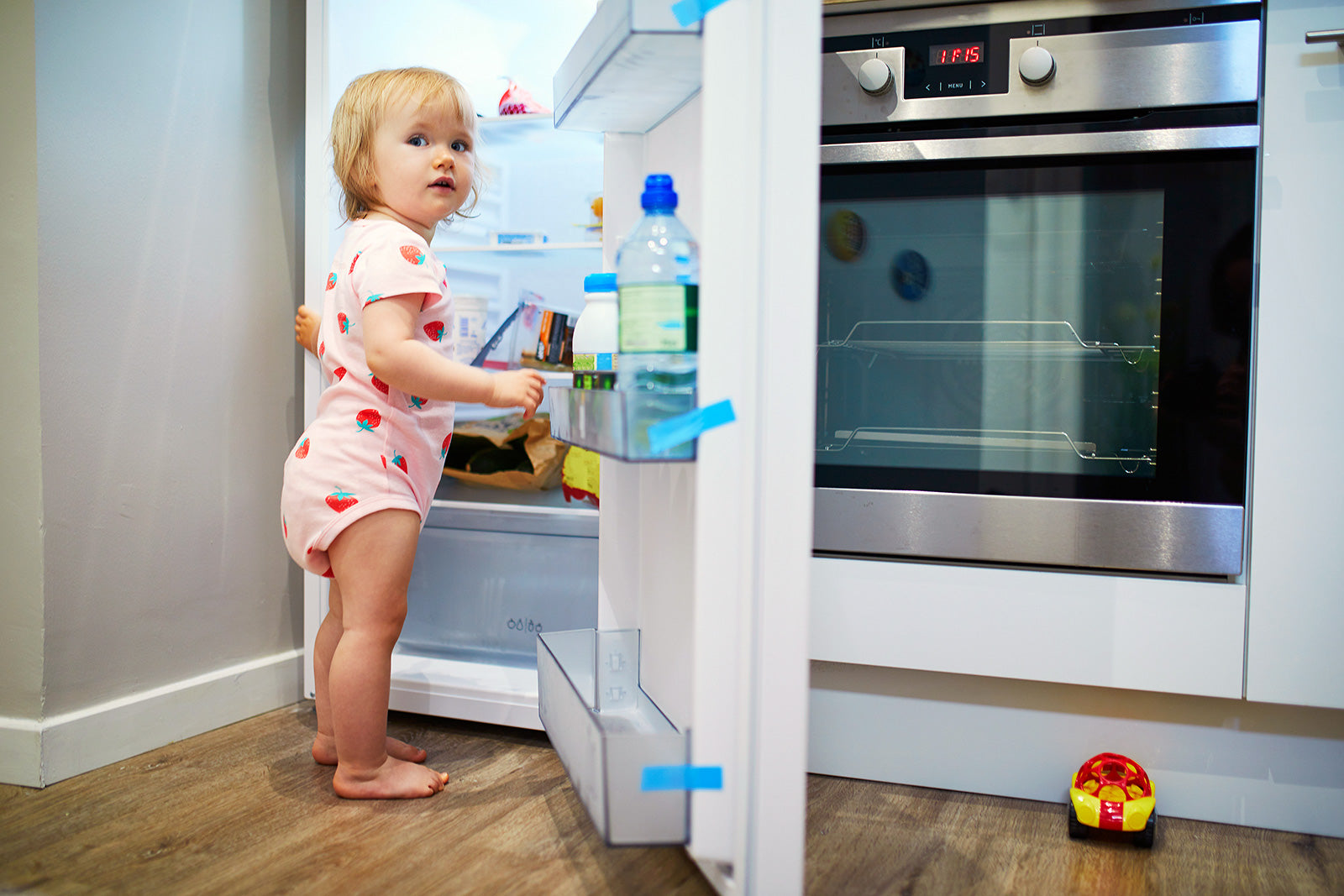Should You Worry About Heavy Metals in Formula?

Heavy metals and baby food are not words you wish to see used in the same sentence. It turns on many alarms in parents who are doing everything they can to ensure their baby is safe, happy, and healthy. With so much pressure and worry that comes with raising a baby, the last thing we as parents want to worry about is harmful metals in formula.
Suddenly, meal planning and baby nutrition feel much scarier than they should be. It's easy to get overwhelmed by the information we find online, but we first need to educate ourselves on what exactly heavy metals in formula are. It's essential to understand how and why they get into baby food, and should we be panicking?
You should first look beyond the exaggerated headlines and see what the current research says. Join us as we break it down, help you breathe easier, and feel more confident in feeding those bundles of joy.
What Are Heavy Metals?
Hearing the term "heavy metals" immediately associates us with dangerous substances like lead or mercury. Surprisingly, these are exactly the metals we're talking about! Interestingly enough, heavy metals, along with arsenic and cadmium, appear naturally in our environment.
If you do a little research, you'll know that they can be found in the soil, the water we drink, and the air we breathe. So, it is only natural that traces of heavy metals end up in our food, including baby food. This happens through various means like farming, processing, and packaging.
Now, hold on. Before we start worrying about our pantry items, note that everyone is exposed to small amounts of these metals, whether through food or water consumption. The real question here is whether they come in harmful levels. We especially want to know if they can harm our babies, who are more sensitive than us.
How Do Heavy Metals End Up in Baby Food?
This is a question that weighs heavily on every parent, but there are logical explanations. If we look at the facts, we'll see that it's nearly impossible to find food that is free of any traces of these elements. The ingredients used for making baby food are grown in soil, meaning it's inevitable that there will be some traces. And this has nothing to do with whether they are conventional or organic. Crops absorb water and nutrients from the soil, so it's only natural that they tend to take up traces of metals present in the soil during their growing process.
These heavy metals then make their way into baby food primarily through the ingredients used in making it. Baby foods are mainly plant-based. Agricultural practices and processing methods can influence how much of the metals are absorbed. So, it's not necessarily something added intentionally but rather an unfortunate byproduct of nature and farming.
Now, this raises a tricky point. Yes, heavy metals are hard to completely avoid, but does this mean we should throw up our hands and assume there's nothing we can do? Absolutely not. Small steps in your baby’s nutrition can make a big difference.
Should You Be Concerned?
The heart of the matter is: Should we be worried about heavy metals in formula? Honestly, the answer isn't a simple yes or no. Organizations like the U.S. Food and Drug Administration (FDA) and the World Health Organization (WHO) take this matter seriously. They are working to set guidelines to limit heavy metals in baby food.
For one, heavy metals are harmful, especially to babies, because they can interfere with brain development, affect behavior, and even cause long-term health issues. However, there is no room for panic because the truth is that the amount of metals we see in baby foods is really small. Not every bite of baby food contains harmful levels of heavy metals, and we have to keep in mind that our bodies—yep, even our babies'—are quite resilient.
Heavy metals account for a relatively small part of the overall toxic metal exposure risk, but we must pay attention and be aware of what foods are implicated and why. The goal here is to reduce exposure as much as possible without driving ourselves crazy.
How Can You Reduce Your Baby's Exposure?
We have to accept that heavy metals in formula are a reality, so now, let's focus on practical toddler nutrition tips to reduce exposure. There is no need for extreme measures. Tossing out every jar of baby food won't help. Let's discuss some simple actions to minimize risk.
1. Variety Is Key
When preparing your baby's meals, offering them a variety of foods is great for their palate but also reduces their exposure to heavy metals. How? Well, different foods have different levels of metals.
Let's take carrots, rice, and sweet potatoes. They are the most popular ingredients in baby food and, at the same time, more effective at hanging onto heavy metal traces. Rice tends to absorb more arsenic, while other grains like oats or barley don't.
Processing those crops can condense heavy metals and raise the quantities in them. So, by mixing them into your baby's nutrition, you're less likely to concentrate on one food that may have higher levels of metals. Don't rely solely on rice cereal, but rather, try switching to oatmeal or multigrain cereals. This is also a great way to spread out potential exposure while, at the same time, it's fun to see your baby's reaction when they try something new!
2. Go for Low-Metal Foods
Levels of heavy metals are lower in some foods, so think about going for choices like:
- Apples, pears, and bananas
- Sweet potatoes (yes, these are generally okay in moderation)
- Eggs and proteins like chicken
- Green veggies like peas and spinach
Compared to carrots and rice, these foods tend to have lower levels of metals.
3. Be Picky About Packaged Baby Foods
Choose brands that are transparent about the source and production of the ingredients in their baby food. If you buy packaged baby foods, then you know that some companies go the extra mile to test for heavy metals and reduce contamination. So, make it a habit to always read labels and do a bit of research. This will help you pick brands that are proactive about metals in formula.
4. Make Your Own Baby Food
Homemade food is always the best option because you have more control over ingredients and processing methods. Using fresh, organic produce helps limit the exposure to additives or packaging materials that might contribute to heavy metal contamination.

5. Watch the Snacks
Hate to break it to you, but baby snacks we reach for out of convenience can be higher in heavy metals. Higher levels of arsenic can be found in rice-based puffs or teething crackers. We are not saying that these snacks are off-limits. Instead of a daily staple, keeping them in the "once in a while" category is best.
What Do Experts Say?
There is active research done by organizations like the FDA and the American Academy of Pediatrics (AAP) that are addressing the issue of heavy metals in baby food. We see that the FDA has already laid out its "Closer to Zero" plan. The goal is to reduce the levels of heavy metals in formula over time. Stricter guidelines and policies will surely come in time, but knowing the issue is being taken seriously at the highest levels is reassuring.
At the same time, the AAP recommends that parents introduce a variety of nutrient-rich foods to their baby's diet to maintain a balance. But you're already doing that just by worrying about what your baby eats.
Balancing Reality and Concerns
Every parent feels anxious when it comes to their baby's health—it's normal. With so many decisions to make, each one can feel like a monumental one. However, it's important not to lose sight of the bigger picture, which is that babies are resilient. It's a fact that their growth and development depend on a range of factors, not just a few parts per billion of metals.
Our role as parents is to stay informed and keep things in perspective. Yes, take sensible precautions, but don't overhaul everything about our feeding habits overnight. Once we know all the facts, make small, manageable changes to reduce exposure.
Conclusion
Worrying about heavy metals in formula is understandable. However, let's all take a deep breath and get the facts. Yes, heavy metals are present more in some foods than others, but there are plenty of ways to minimize the risk without turning mealtime into a stressful ordeal. Introduce a balanced diet that will include a variety of ingredients and ensure your little one grows up healthy and strong.
So, should we be worried about heavy metals in formula? It's alright to be a little cautious. Having the right knowledge and making simple strategies will make us more confident about what goes on our baby's plate.
If you have questions or want to know more about keeping your baby healthy, read our blogs.




